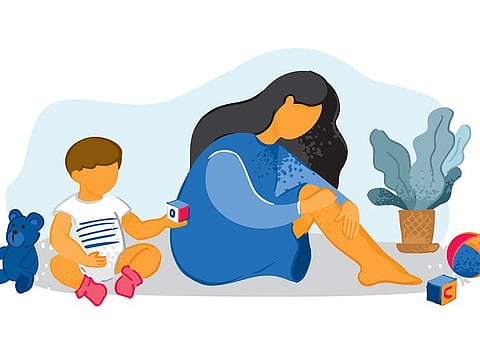Dubai Health Authority: One in nine women experience post-partum depression
Health authority explains the signs and symptoms one must be aware of

One in nine women experience postpartum depression (PPD), Dubai Health Authority (DHA) wrote on its social media channel on Tuesday.
It explained in its Instagram post that PPD is depression that occurs after childbirth. It involves feelings of extreme sadness, indifference and/or anxiety as well as changes in energy, sleep and appetite. It is a serious but treatable medical illness.
What are the symptoms of PPD?
DHA lists the symptoms as:
What causes PPD?
DHA explains that PPD is caused by a two-pronged tussle. These are:
Physical stressors
Emotional stressors
What are the common types of treatment for postpartum depression?
Rehabilitation may require one or both of the following, it adds:
When should you seek help?
DHA recommends seeing a professional if signs and symptoms:
Sign up for the Daily Briefing
Get the latest news and updates straight to your inbox



